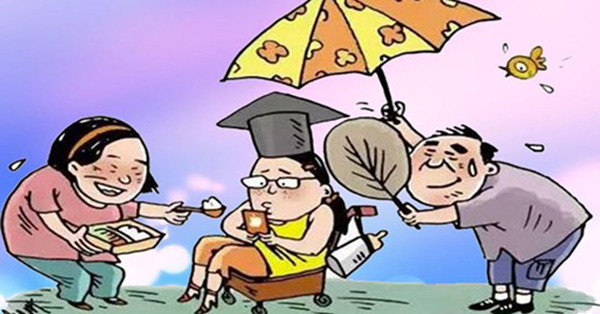Can't stand your boring husband? Thinking of calling it quits? Well, you should have mustered the nerve to leave him well before this economic crisis. Now you might not be able to afford to live without him, literally.
It's a well-known fact that financial woes are the biggest cause of marital spats. With the economy the way it is, you'd expect many husbands and wives to be at each other's throats. But the conventional wisdom is wrong. This recession is so bad that you can count divorce lawyers among those professions that have taken a hit.

That's good news, right? People are now forced to stay together and work things out. Well, not if history tells us anything. The Depression also saw a decline in the divorce rate, but, according to marriage historian Stephanie Coontz, incidents of domestic violence and outright family desertion went up.
In any case, despite the fact that divorce can cause all sorts of emotional and financial turmoil, its statistical decline isn't as positive a social indicator as one might think. As economist David Friedman has written, divorce is actually a reflection of "an increase in the range of choice available to individuals," and a high divorce rate and the general weakening of marriage "are bad things only to the extent that they reflect a failure of our institutions and expectations to adjust completely to new circumstances."
In other words, in more traditional days, in which social changes occurred more slowly, we all shared a general idea as to what marriage was and how it functioned. From an economic standpoint, we all understood how the marital division of labor worked. But in a rapidly changing society, it's harder to figure out what kind of arrangement we should make with our spouses. Such changes as the entrance of large numbers of women into the workplace and the mechanization or outsourcing of household duties (from washing clothes to curing bacon) undermined that tradition.
As the basic marriage deal has shifted, our notions and ideals haven't shifted with it, and the disconnect explains the astronomical divorce rate in contemporary America. We haven't figured out a new marriage model that takes into account the greater range of choices for both women and men.
This fits right into the fact that we're divorcing less in hard times. In the context of this recession, we have fewer choices, and fewer choices means we're back to a good fit with the marriage model of old. Still -- and a little paradoxically -- the fact that there are untraditional marriages may also be helping husbands and wives withstand some of the emotional and financial stress of economic hard times. During the Depression, the ego blow to a man who lost his job caused marital problems. Today, if a man loses his job -- and his wife is the breadwinner -- it's less likely to create as much unhappiness.
If it's distasteful to you to look at marriage in economic terms, then it might be easier to consider the economics of divorce. Not only are there attorney's fees to be paid, but the value of the two biggest assets of most marriages -- a home and a retirement plan -- has diminished dramatically. Faced with the prospect of halving their shrunken assets, many couples are deciding to stick it out a while.
A recent survey conducted by the Institute of Divorce Financial Analysts -- who knew? -- found that 68 percent of its members "have seen clients who could not afford to get divorced because of recession-related financial problems."
So even as most of us are looking forward to happier days of an economic recovery, there must be a number of Americans who are waiting patiently to be able to afford to experience the pain and suffering of divorce. You've heard of the pent-up desire and aspiration that are released after times of war?
That's why we get such phenomena as baby booms. When this economic recovery finally arrives, prepare yourselves for a boom of an entirely different sort.






